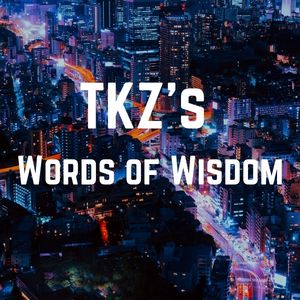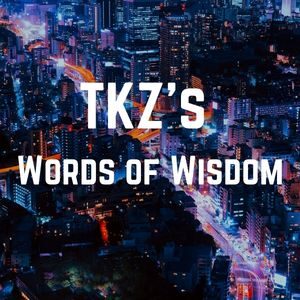Openings: Creating the beginning of the story for the reader
I am honored to now be a KZB regular, and to be given the biweekly Words of Wisdom spot that Steve so ably started and ran for the past several months. He will be a hard act to follow, but I will do my best.
While this isn’t my first post at the Killzone, not even my first Words of Wisdom, I thought revisiting past posts on openings a fitting post for today: first chapters, effective openings, and focusing on crafting a compelling opening line or paragraph. Like Steve did, I see myself as laying the table for a discussion about these three nuggets of past wisdom today. You can read the full post for each excerpt via the date links.

So here are the basic points I’d like to reiterate about first chapters:
- Start with action or dialogue. If you absolutely must begin with a description, make sure it is emotionally evocative from the main character’s viewpoint.
- Leave backstory for later or weave it in with dialogue. Or drop it in a line or two at a time in the character’s head if it relates to the action.
- Make sure all conversations serve a purpose.
- Remember to include emotional reactions during dialogue between characters.
- Make sure your characters are not talking about something they already know just so the reader can learn about it.
- Keep the story moving forward.
–Nancy Cohen February 1, 2012
On my list, the following are crucial to providing an effective opening:
- An initial ‘disruptive’ event that changes everything for the main protagonist: This event doesn’t need to be on the scale of a nuclear accident but it does need to profoundly affect the path the main character must take. It helps set up the plot, motivation and tension for the first chapters of the book.
- Act/show first explain later: Often there’s way too much explanation and back story in the first few pages, which often serves to diminish tension and momentum. It’s better to show/have the protagonist act first and then wait to provide the reader with explanation. The only caution I would add is to beware of introducing actions that make no sense or which are completely unexplained to the reader which leads to…
- Ground the book: It’s important to make sure the reader has a solid grounding in terms of the ‘world’ you have created. This means a solid foundation of time, place, character and voice. The reader shouldn’t have to work too hard to figure out what’s happening in the first few pages. An intrigued but well-grounded reader wants to read on, a disorientated reader may just put the book down.
- Establish a strong, appropriate POV and ‘voice’ for the genre of book you are writing: Occasionally in our first page critiques we’ve found it hard to reconcile the ‘voice’ with the subject matter or tone of the book. Sometimes a POV ‘voice’ might sound like ‘YA’ but the book doesn’t appears to be a young adult book. This is especially tricky when using a first person POV – as the ‘voice’ is the only point of reference for the reader.
–Clare Langley-Hawthorne November 25, 2013
We crime writers talk a lot about great hooks and how to get our readers engaged in the first couple pages. We worry about whether we should throw out a corpse in the first chapter, whether one-liners are best, if readers attention spans are too short for a slow burn beginning. This is especially true if you are writing what we categorize as “thrillers.”
But I’m tired of hooks. I’m thinking that the importance of a great opening goes beyond its ability to keep the reader just turning the pages. A great opening is a book’s soul in miniature. Within those first few paragraphs — sometimes buried, sometimes artfully disguised, sometimes signposted — are all the seeds of theme, style and most powerfully, the very voice of the writer herself.
It’s like you whispering in the reader’s ear as he cracks the spine and turns to that pristine Page 1: “This is the world I am taking you into. This is what I want to tell you. You won’t understand it all until you are done but here is a hint, a taste, of what I have in store for you.”
Which is why, today I am still staring at the blank page. We turned in our book last week to our new publisher and now it’s time to start the whole process all over again. I give myself a week off but then I try to get right back in the writing groove. I have an idea for a new book but that great opening?
Nothing has come to me yet. And I know my writer-self well enough by now that I know can’t move forward until I find just the right key to unlock what is to come. So here I sit, staring at the blinking curser, thinking that if I can only make good on my beginning’s promise, everything else will follow. Because that is what a great opening is to me: a promise to my reader that what I am about to give them is worth their time, is something they haven’t seen before, something that is…uniquely me.
Oh hell, I’ll let Joan Didion explain it. I have a feeling she’s given this a lot more thought than I have:
Q: You have said that once you have your first sentence you’ve got your piece. That’s what Hemingway said. All he needed was his first sentence and he had his short story.
Didion: What’s so hard about that first sentence is that you’re stuck with it. Everything else is going to flow out of that sentence. And by the time you’ve laid down the first two sentences, your options are all gone.
Q: The first is the gesture, the second is the commitment.
Didion: Yes, and the last sentence in a piece is another adventure. It should open the piece up. It should make you go back and start reading from page one. That’s how it should be, but it doesn’t always work. I think of writing anything at all as a kind of high-wire act. The minute you start putting words on paper you’re eliminating possibilities.
Didion gave this interview around the time she published her great memoir after her husband’s death The Year of Magical Thinking, the first line of which is: “Life changes fast.”
P.J. Parrish January 12, 2015
***
Now it’s your turn.
- What are your most important considerations in crafting an opening chapter?
- In crafting effective openings?
- How do you make that opening line or paragraph be more than “just” a hook?
- Also, I’m very happy to consider requests for future Words of Wisdom topics you would like to see.



 Just a few weeks ago I began my first real foray into the world of Instagram for my art work (BTW I’m @clangleyhawthorneart if anyone’s interested:)) and I feel like I’m definitely in the ‘Instagram for Dummies’ phase! Bizarrely – since I’m only focusing on my art there – I seem to have discovered a whole lot of book and writing related pages so rather than being focused on my own work I’ve been salivating over beautiful photographs of libraries and book covers instead:). As with any new social media experience, I’m still in the throes of wonderment (which won’t last long – no doubt I’ll soon be getting the trolls and the weird follows from fake men!) but also in the thick of trying to work out how the heck to use it. So far I’ve really only managed to upload photos…
Just a few weeks ago I began my first real foray into the world of Instagram for my art work (BTW I’m @clangleyhawthorneart if anyone’s interested:)) and I feel like I’m definitely in the ‘Instagram for Dummies’ phase! Bizarrely – since I’m only focusing on my art there – I seem to have discovered a whole lot of book and writing related pages so rather than being focused on my own work I’ve been salivating over beautiful photographs of libraries and book covers instead:). As with any new social media experience, I’m still in the throes of wonderment (which won’t last long – no doubt I’ll soon be getting the trolls and the weird follows from fake men!) but also in the thick of trying to work out how the heck to use it. So far I’ve really only managed to upload photos…